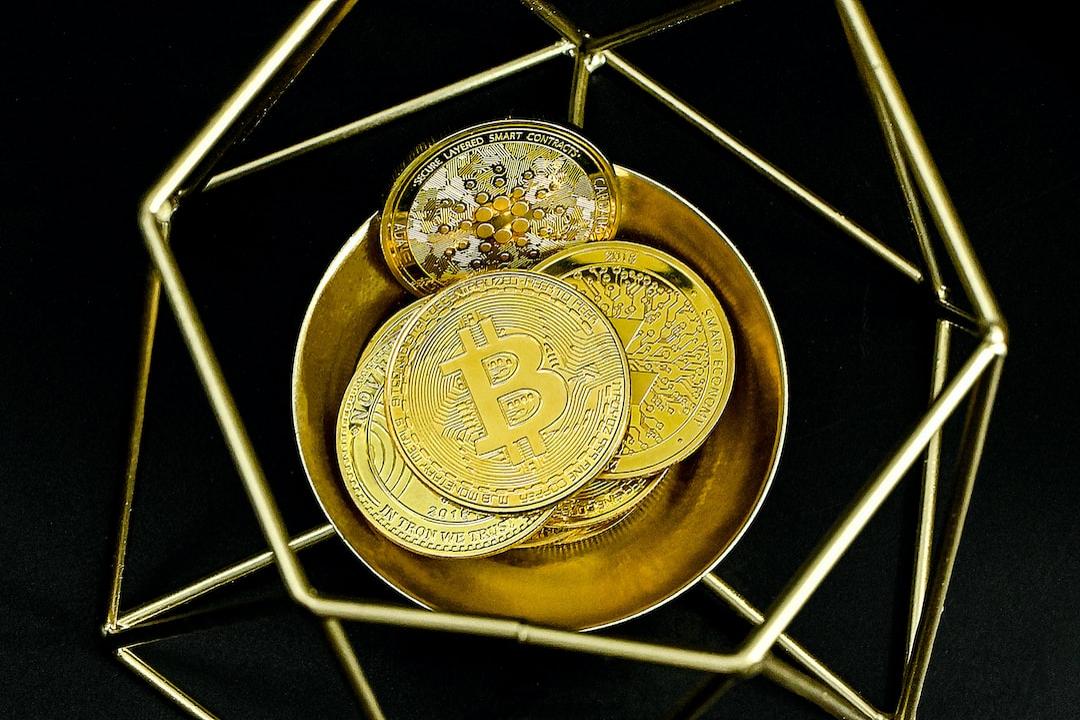The first batch of six Bitcoin and Ethereum spot ETFs approved by the Hong Kong Securities and Futures Commission (SFC) were issued today and will officially be listed on the Hong Kong Stock Exchange tomorrow. Let’s take a look at the differences between these six spot ETFs in terms of management fees, trading, issuance price, and virtual asset platforms.
(Historical background:
Hong Kong BTC and ETH spot ETFs approved simultaneously, could they become a new catalyst for the market?
)
(Supplementary background:
Hong Kong’s six “Bitcoin and Ethereum spot ETFs” will begin trading on April 30, with CSOP, Huatai, and Bosera engaging in a fee war.
)
On the 15th, the SFC approved the applications of Bosera International, Huatai Fund, and CSOP International, the Hong Kong subsidiaries of three Chinese public fund giants, for six Bitcoin and Ethereum spot ETF products, making it the first market in Asia to issue virtual asset spot ETFs. These six ETFs were issued today and will be officially listed on the Hong Kong Stock Exchange tomorrow.
What are the differences between these six spot ETFs?
Huatai (Hong Kong), Bosera International, and CSOP International have each issued two products: Bitcoin spot ETFs and Ethereum spot ETFs. According to China Fund News, these six ETFs have slight differences in terms of management fees, trading, issuance price, and virtual asset platforms.
In terms of management fees:
The annual management fee for CSOP’s Bitcoin and Ethereum spot ETFs is 0.3% of the net asset value, with a waiver for the first six months after listing.
The annual management fee for Bosera’s Bitcoin and Ethereum spot ETFs is 0.6% of the net asset value, with a temporary fee reduction from April 30, 2024, to August 2024.
The annual management fee for Huatai’s Bitcoin and Ethereum spot ETFs is 0.99%.
In terms of issuance price:
CSOP International and Huatai (Hong Kong) products have an issuance price of $1 per share.
The initial issuance price of Bosera’s Bitcoin and Ethereum spot ETFs is roughly equivalent to 1/10000 and 1/1000 of the tracked index on April 26, 2024, respectively. This means that the net asset value of the fund corresponds to approximately 0.0001 BTC and 0.001 ETH, so holding 10,000 shares is equivalent to 1 BTC and holding 1,000 shares is equivalent to 1 ETH.

In terms of trading units:
CSOP International’s Bitcoin/Ethereum spot ETF has a minimum primary market application of 100,000 shares (or multiples thereof), with a minimum trading unit of 100 shares in the secondary market.
Bosera’s Bitcoin spot ETF has a minimum primary market application of 50,000 shares (or multiples thereof), with a minimum trading unit of 10 shares in the secondary market. The Ethereum spot ETF has a minimum primary market application of 100,000 shares (or multiples thereof), with a minimum trading unit of 10 shares in the secondary market.
In addition, compared to products from CSOP International and Bosera International, Huatai (Hong Kong)’s Bitcoin and Ethereum spot ETFs also have RMB counter services.
Regarding the virtual asset platforms, CSOP and Huatai’s products have chosen OSL as their virtual asset trading and custody partner, while Bosera’s products are supported by the cryptocurrency exchange HashKey Exchange, covering trading and custody aspects.
Experts point out that besides the differences in fees, issuance, and trading arrangements, each ETF also has different market makers and virtual asset platforms. Therefore, investors need to pay attention to the total ownership cost of each ETF.
The management scale of Hong Kong spot ETFs is expected to reach HKD 1 billion.
Since the approval of the world’s first Bitcoin spot ETF in the United States in January this year, the management scale of related ETFs has approached USD 58.9 billion. Due to the relatively small size of the Hong Kong ETF market, Bloomberg ETF analyst Eric Balchunas previously estimated that the inflow scale of Hong Kong’s Bitcoin spot ETFs may only reach USD 500 million.
Xian Sujun, Bloomberg’s Chief Analyst for ETFs in the Asia-Pacific region, estimates that the asset management scale of Hong Kong’s Bitcoin and Ethereum spot ETFs is expected to reach USD 1 billion. However, whether this goal can be achieved may depend on the speed of improvement in infrastructure and ecosystems.
Xian Sujun explains that there is a strong demand for ETFs from retail and institutional investors in Hong Kong, and both types of investors have shown interest in virtual assets. However, the innovative nature of these products means that it will take time for the infrastructure of cryptocurrency ETFs to mature. Once the ETF ecosystem develops, market competition will become more intense, fund flows may increase, pricing will become more accurate, spreads will narrow, liquidity will increase, and fees will decrease.

Related Reports
After Hong Kong approves cryptocurrency ETFs, will South Korea, Japan, and Singapore follow suit? What about Taiwan?
Will Hong Kong Ethereum spot ETF be listed “later” than Bitcoin? Can Chinese investors buy it?
Hong Kong rushes to approve Ethereum spot ETF. Bloomberg analyst: Don’t expect large funds, will force the SEC to accelerate approval?


